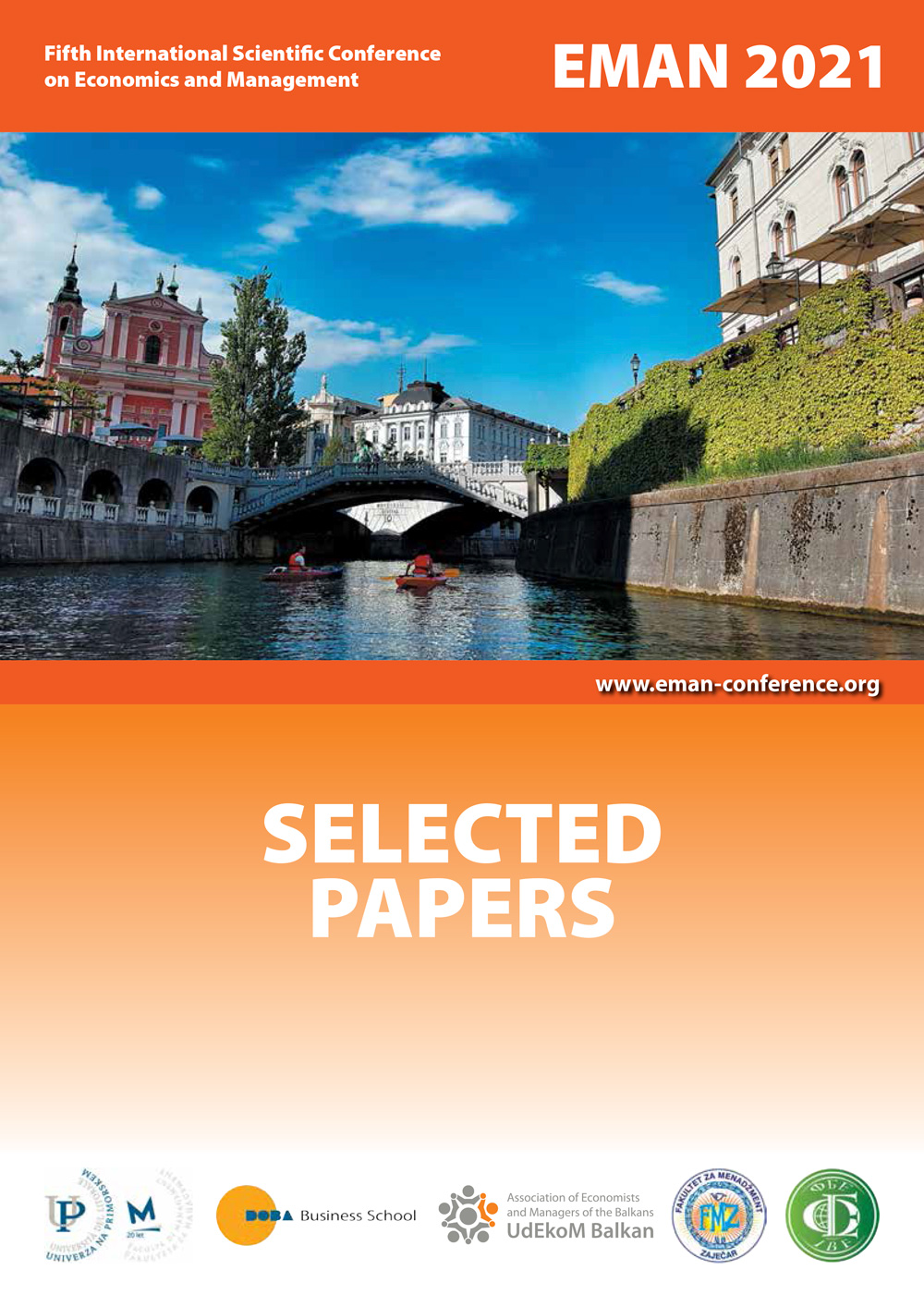HAS THE GLOBAL PANDEMIC OF 2020 LED TO PERSISTENCE IN THE SHARE PRICES OF LARGE GLOBAL COMPANIES?
HAS THE GLOBAL PANDEMIC OF 2020 LED TO PERSISTENCE IN THE SHARE PRICES OF LARGE GLOBAL COMPANIES?
Author(s): Santos Hortense, Rui Dias, Cristina Vasco, Paulo Alexandre, Paula Heliodoro
Subject(s): Social Sciences, Economy
Published by: Udruženje ekonomista i menadžera Balkana
Summary/Abstract: This paper aims to analyze the predictability of the stocks of Apple, Microsoft Amazon.com, Tesla, Facebook, Samsung, Electronics, Johnson & Johnson, Walmart, in the period from October 1, 2019 to January 11, 2021. To carry out such an analysis, it is intended to answer two research questions, namely: (i) is there predictability in the stock prices of the companies under analysis? (ii) Can investors diversify risk by incorporating these companies’ shares into their portfolios? The results of the Exponents Detrended Fluctuation Analysis (DFA) show that Apple (0.51) Microsoft (0.49), Amazon.com (0.53), Samsung Electronics (0.53), Johnson & Johnson (0.53) do not have long memories in their time series, that is, investors cannot obtain abnormal profitability without incurring additional risk. Walmart (0.41) has anti-persistence, while Tesla (0.60), Facebook (0.55) indicate some predictability, meaning investors adjusting their trading strategies to the necessary missteps may have some above-average profitability, which partly rejects the first question of the research. To answer the second research question, we estimated the Detrended cross-correlation coefficient (pDCCA) model, which indicates 17 mean correlation coefficients (≈ 0.333 → ≈ 0.666), 7 strong cross-trend correlation coefficients (0.666 → ≈ 1,000), 4 weak correlation coefficients (≈ 0.000 → ≈ 0.333). These results show that investors should be careful to incorporate the shares of these companies into a single portfolio; the suggestion would be to group only the shares of companies that do not present predictability and have low rhoDCCA. The authors consider that this evidence will be important for institutional investors when carrying out trading strategies based on maximizing profitability, but also mitigating risk when diversifying.
Book: EMAN 2021 / 5 – Economics & Management: How to Cope with Disrupted Times - SELECTED PAPERS
- Page Range: 1-15
- Page Count: 15
- Publication Year: 2021
- Language: English
- Content File-PDF

